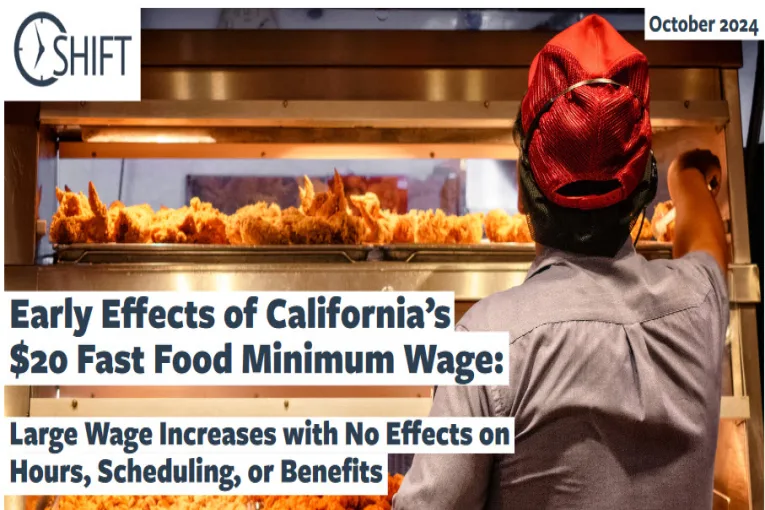
Sacramento, CA – Another study —this time from the Harvard Kennedy School and the University of California San Francisco (UCSF)—confirmed the findings of the Berkeley study released last week showing that California’s $20-per-hour minimum wage increase is delivering substantial benefits for thousands of workers across the state without reducing work hours, staffing, or employee benefits.
According to a release from the Governor’s office, the study made three key findings.
First, “California fast food workers experienced substantial wage increases. Immediately after the new minimum wage went into effect, hourly wages for California fast food workers increased by at least $2.50, and the share of California fast food workers earning less than $20/hour declined by about 60 percentage points.”
Second, “We find no evidence that wage increases had unintended consequences on staffing, scheduling, or wage theft. In response to the sizeable wage increase for California fast food workers, we do not find evidence that employers turned to understaffing or reduced scheduled work hours to offset the increased labor costs. Rather, weekly work hours stayed about the same for California fast food workers, and levels of understaffing appeared to ease. We also find that unstable scheduling practices and wage theft were unaffected by the wage increase.”
Third, “We find no evidence that wage increases were accompanied by a reduction in fringe benefits. In response to wage increases, California fast food employers could have looked to cut costs by reducing fringe benefits such as health or dental insurance, paid sick time, or retirement benefits. We find no evidence of reductions in any of 7 types of fringe benefits in response to the California fast food wage increase.”
The study also noted that some fast food workers still face issues that existed before the minimum wage increase related to underemployment and unpredictable schedules.
The Harvard/UCSF study follows research released by UC Berkeley’s Institute for Research and Labor Employment showing that the minimum wage increase led to significant benefits for workers and no significant reduction in employment in the fast-food sector, and only a modest increase in menu prices.
In July, California set a record for the most fast food jobs ever before in state history. Since the law went into effect in April, the state has gained 7,400 fast food jobs, with consistent increases throughout the year.
The latest research validating California’s approach comes after corporate restaurant industry groups pushed out “fake” numbers to make it seem like thousands had been fired because of the wage increase.
Fake data from the restaurant industry is par for the course with big business. Why tell the truth when you can just lie?